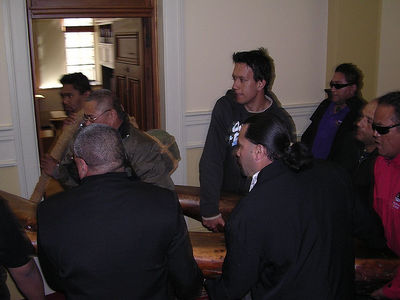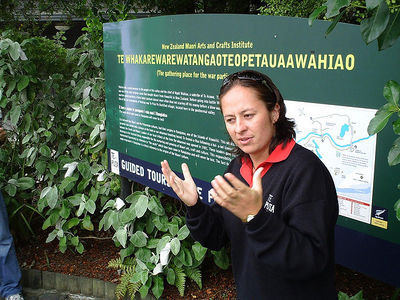Cultural competence for teachers
| Practice Context | |
|---|---|
| Biculturalism | |
| What does cultural competence mean? | Objectives | What is cultural competence? | Biculturalism for teachers | e-Learning activity - Exploring cultural competence. | Summary |
Biculturalism for teachers
"Biculturalism is about the relationship between the state's founding cultures, where there is more than one. Multiculturalism is about the acceptance of cultural difference generally."(Durie, 2005, p 1) [1]
In New Zealand there is an expectation that educators will honour Te Tiriti o Waitangi by integrating its principles into their teaching practice, therefore it is important to recognise the bicultural relationship within a country that also embraces other ethic cultures and groups with many and varied cultural identities.
New Zealand tertiary education is guided by the Tertiary Education Strategy. This strategy describes the Government's strategic direction for tertiary education and outlines the Government's priorities. An important part of the bicultural vision for tertiary education is to enable Māori to achieve success as Māori.
The New Zealand Teachers Council have released a resource Tataiako: Cultural Competencies for Teachers of Māori Learners. Whilst this resource is designed for early childhood through to secondary schools the competencies and practices linked to those competencies can be translated into the tertiary setting.
|
|
Further Reading (for those wanting more). It is highly likely that each tertiary institution and organisation has their own documentation around support for Māori learners.
Documents that are highly significant to staff working at Otago Polytechnic include: Awhina Me Te Muru – Guide for Otago Polytechnic Staff You will get an opportunity to explore the strategies and priorities of your institution or organisation in Unit 4 Work Context. |
References
- ↑ Drurie, J. (2005) The Rule of Law, Biculturalism and Multiculturalism. Paper presented at the ALTA Australasian Law Teachers Association Conference, Hamilton, New Zealand. Retrieved from http://www.lawcom.govt.nz/sites/default/files/speeches/2005/07/ALTA%20conference%20-%20July%202005%20-%20Durie.pdf

